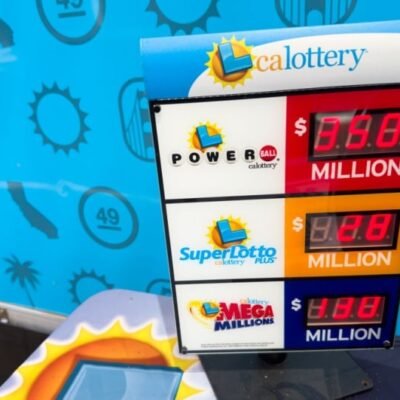
LAS VEGAS (KLAS) — A national report that details attempts to inflate energy bills by utility companies operating as monopolies takes shots at NV Energy and Southwest Gas, but state regulators say they have consumers’ backs.
The report from the Energy and Policy Institute (EPI) cites instances when Southern Nevada utilities have tried to pass off costs to ratepayers for spa services, travel expenses of a spouse, company-branded gifts, and even a golf course membership.
Peter Kostes, communications director for the Public Utilities Commission of Nevada (PUCN), said those attempts and others failed.
“The Nevada examples cited in the report were addressed in prior rate cases, and the Commission ultimately did not allow the costs of any inappropriate expenditures to be recovered through customer rates,” Kostes said.
Consumers have little patience for monopolies that constantly spar with regulators to increase profits for stockholders. Just this week, community advocates said low income families had reached a “crisis point” with utility bills.
EPI isn’t only interested in protecting ratepayers. The organization also seeks to expose attacks and deception by fossil fuel companies, utilities and associated groups that try to slow the conversion to renewable energy.
Southwest Gas — targeted in the report for the bulk of inappropriate charges related to Nevada ratepayers — offered a short statement: “The rates Southwest Gas charges its customers include only those costs approved by its regulators, and do not include expenses such as community giving and volunteer programs, political contributions, lobbying, sports sponsorships, and corporate events.”
But the report describes a cat-and-mouse game that puts the burden on consumer advocates to catch them if they can. It can be a daunting task in the blizzard of paperwork that inundates PUCN and state regulators. It’s a system that’s less-than-friendly for consumers — and consumer advocates — looking for answers about what utilities are up to.
“As Nevada regulatory staff noted, utilities routinely and repeatedly attempt to seek cost recovery for expenses previously disallowed or flagged as concerns,” the EPI report said.
“Southwest Gas sought to bill Nevada customers for board members’ spa services including a manicure and pedicure, for food and beverages purchased during a Las Vegas Golden Knights professional hockey game, and for in-room hotel movies and mini-bar expenses,” EPI’s report said. “A senior executive at the utility added a charge for their spouse to travel to meetings of the utility’s board of directors. The utility has a history of shifting Wall Street costs onto customers, including sticking its Arizona customers with $560,000 annually for ‘costs associated with maintaining investor relations’ in a 2019 rate case, and $217,870 in investor relations expenses including air travel, meals, and car rentals in a 2016 case.”
Southwest Gas operates in Arizona (1.15 million customers), Nevada (800,000 customers), and California (200,000 customers).
A Nevada regulatory staffer who ferreted out the abuses in the Southwest Gas 2020 rate case noted that overlooking small charges can have significant ramifications. “The issue with ignoring these costs is that the costs are inappropriate, and if later brought to light would lessen the public’s confidence in the regulatory process,” the staffer wrote.
The report looks back over eight years of records.
NV Energy didn’t command as much attention as Southwest Gas, but the report did criticize spending on cell phone charging banks emblazoned with the company logo — part of a swag bag given to people attending a lithium conference. The report highlighted public relations messages stuffed into ratepayers’ bills, questioning NV Energy’s habit of passing along costs of their efforts to look good in their customers’ eyes for “investments in the community.”
NV Energy generally tries to recover the costs of these bill inserts as part of its Demand Side Management plan expenses, the report said. In a recent rate case, Nevada’s Bureau of Consumer Protection recommended that the PUCN require NV Energy to ensure that its education materials are “designed to convey specific messages about the benefits and functionalities” of the program and “not merely corporate image building or goodwill advertising.”
And even though the criticism seemed light, NV Energy teed off on EPI. When 8 News Now asked for the company to respond to the EPI report, NV Energy questioned the organization’s integrity, citing its own watchdog group that criticizes EPI’s transparency and alleges that it’s a “dark money group.”
The company’s statement was more formal: “NV Energy is committed to providing safe, reliable and affordable energy for customers. NV Energy seeks recovery of allowable costs, as regulated by the Public Utilities Commission of Nevada. Any cost that would be paid by customers through rates is carefully vetted and considered by the Public Utilities Commission of Nevada before those costs appear in a bill.”
NV Energy noted, “Certain expenses are paid for solely by the company – and are not paid for by customers. That includes NV Energy’s political and charitable donations and branding campaigns.”
Indeed, that’s the law in a few states: Colorado, Connecticut, Maine and New Hampshire. And similar laws are proposed in Arizona, California, Utah and nine other states in the Midwest and Northeast.
Nevada relies on consumer advocates to police the utilities, with the PUCN at the center of the fight. The Nevada Legislature convenes in February 2025, presenting an opportunity to consider new consumer protection laws.





